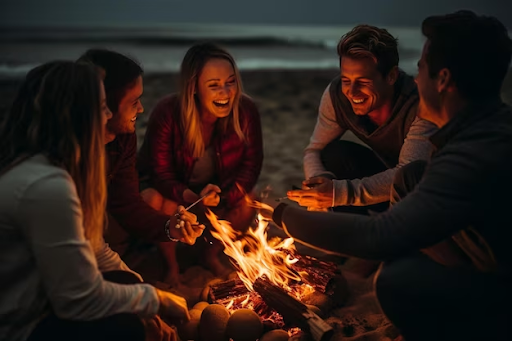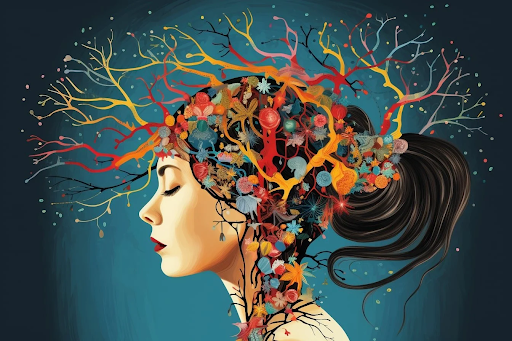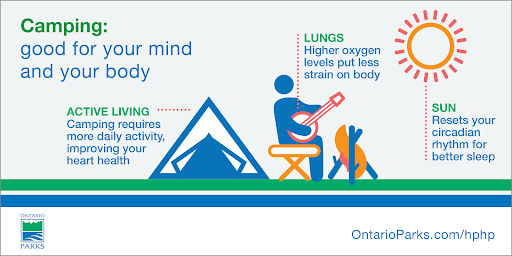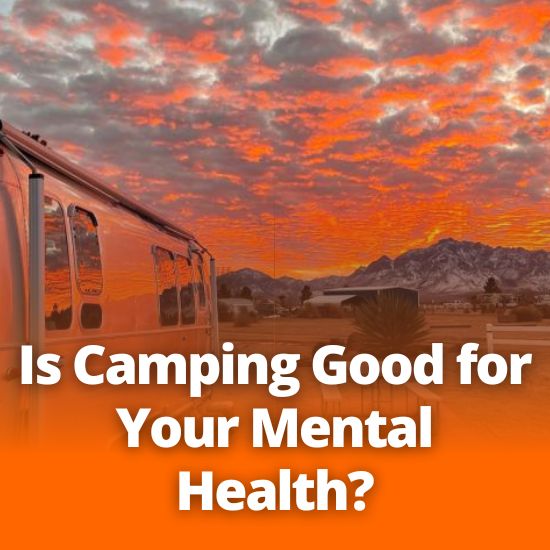
Is Camping Good for Your Mental Health?
A lot can be said for the rejuvenating aspects of nature, most use it in the broad sense of ‘fresh air does you good,’ but what are the specifics? Well you probably won’t be surprised to learn that there have been multiple studies done on the subject. Here are some of what they discovered.
You’ll Sleep Better
The major aspect to this is your circadian rhythm, also known as your body’s internal clock. It’s what regulates your waking and sleeping schedule, along with other bodily functions like your metabolism.
Screens and artificial light can easily disrupt your circadian rhythm; even reading on your phone before bed can give your brain the impression you need to be alert instead of winding down. Being away from these things, sleeping away from artificial light and waking up with more natural sunlight, can help reset your circadian rhythm letting you get a better night’s sleep. In turn, a regular 7-8 hours of sleep (the recommended amount for adults) can improve your mental health!
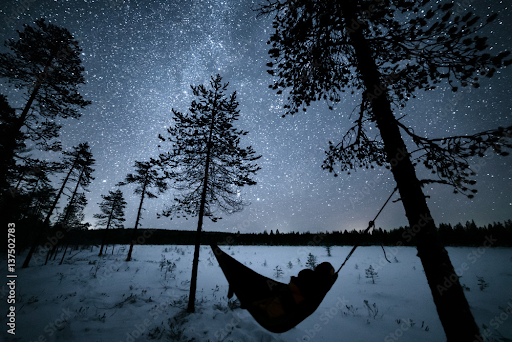
Improves and Encourages Social Bonding
According to a series of studies, “time in nature connects us to each other and the larger world.” This can be sitting around the campfire chatting with your friends and family, hiking or playing games, or just spending time together without outside distractions like work or school.
Another study done at the University of Illinois suggested that having green spaces, particularly in public housing, improved a sense of community. This study found that public housing that had trees and green space surrounding it had residents reporting that they felt more connected with their neighbors, were more concerned and inclined to help and support each other, and had a “stronger sense of belonging” compared to residents of buildings without these green spaces. This community connection proved to reduce the risk of street crime, lower violence and aggression levels between domestic partners, and giving people a better capacity to cope with life stresses.
Studies have gone on to use fMRI machines to measure brain activity when participants viewed nature scenes. The parts of the brain related to empathy and love lit up when viewing these scenes, where viewing urban scenes activated the parts associated with fear and anxiety. Leading to the implication that nature inspires feelings that connect us to each other and therefore a feeling of belonging.
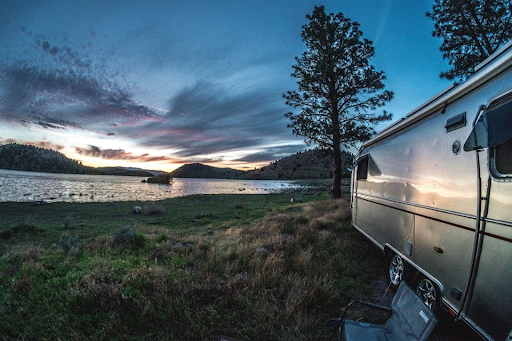
Reduces Stress and Anxiety
Removing yourself from “the grind” also reduces exposure to casual stressors. Everything from traffic, work, noise, whether you’re actively aware of them or not, can impact your mood as well as your nervous, endocrine, and immune systems.
In general “unpleasant environments” can cause you to “feel anxious, sad, or helpless.” (which is why a messy house can create a cycle where you feel depressed so you don’t clean so you feel depressed and on and on) It elevates your blood pressure, heart rate, and muscle tension while suppressing your immune system, while a more pleasant environment reverses that. And, as previously mentioned, natural/green spaces cause the parts of your brain related to positive emotion to activate which is why we humans find nature enjoyable.
One study found that more than two-thirds of people will choose to retreat to a natural setting when feeling stressed or upset – regardless of age or culture. Backing this up, research done in hospitals, schools, and offices found that just adding a plant in a room can lower the impact of stress and anxiety created in these environments.
But why? Well, spending time in nature lowers stress hormones (specifically cortisol) while raising ‘happiness’ hormones such as endorphins and dopamine, allowing you to feel more relaxed and less anxious. If you need a recharge, camping and spending time in nature will literally recharge your batteries. And if it’s in the middle of a deep freeze, even viewing a forest scene can increase mental relaxation. The same studies that discovered this also found that ‘forest therapy’ is linked with improved immune function.
Aids Physical Health
Not only does nature help your mental health but your physical as well. And I’m not just saying being active, I mean that being in or around nature (or just looking at scenes of nature) can lower fear, anger and stress by reducing your blood pressure, heart rate, and muscle tension. Some scientists are even studying the reduction of mortality (basically, extending lifespan).
Because apparently, humans are genetically programmed to find natural elements engrossing and absorbing (who knew) and that it can even distract us from pain or discomfort.
Robert Ulrich, a physician, conducted a study of gallbladder surgery patients; he had half view trees and half view a wall. Patients faced with the trees reportedly tolerated pain better, had fewer negative effects, and spent less time in the hospital. More recent studies have applied this to a broader spectrum of patients with similar results, with nature scenes and plants put in hospital rooms. So next time you have to go for a check-up, take a gander at any art they have in the office. If it’s a Bob Ross impersonator, you’ll know why.

Beyond the psycho-physical, there’s also the easier to experience results of breathing fresh air (opposed to pollution in urban areas), getting plied with Vitamin D, and the extra physically active elements of camping that will lower strain on your body, help fight disease and improve health and immune function, and improve general heart, bone, and lung health (it’s really a whole body rejuvenation).
Digital Disconnect
Excessive screen time has been linked with a loss of empathy and altruism so where there can be the argument that the digital world connects us more than ever, there is also the psychological aspect that disrupts our brains and disconnects us from reality. Nature deprivation has been associated with higher instances of depression and isolation, with a 2011 study published in the Journal of the American College of Cardiology that increased screen time was associated with a higher risk of death (independent of physical activity).

With that all that in mind, taking the time to reconnect with the natural world through a walk, time on the deck, and especially camping can make huge strides to making you a happier, healthier, human being.
(Information from Ontario Parks; University of Minnesota; CDC; Canadian Mental Health Association; Schertz, K. E., & Berman, M. G. (2019). Understanding Nature and Its Cognitive Benefits; Sleep Foundation ‘Mental Health and Sleep’ Dimitriu, Alex; Suni, Eric; Journal of Environmental Psychology; Wolf LJ, zu Ermgassen S, Balmford A, White M, Weinstein N (2017) Is Variety the Spice of Life? An Experimental Investigation into the Effects of Species Richness on Self-Reported Mental Well-Being. PLoS ONE; Frontiers. “Stressed? Take a 20-minute ‘nature pill’.” ScienceDaily 2019; Northern Ontario Travel, Why RVing is good for your mental health” Bai, Margot; Delagran, Louise MA, MEd; “How Does Nature Impact Our Wellbeing?”; University of Minnesota)

